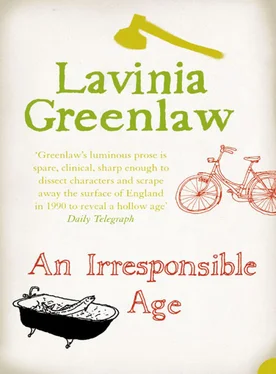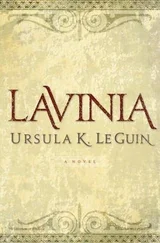Jacob offered to make soup. He found potatoes and kale, chopped them roughly and cooked them briefly with a lot of garlic and chilli. He made Barbara watch him cook and told her when to sit at table. He watched her eat and jumped up to fetch whatever she might need – a napkin, a glass of wine, a tissue for her streaming eyes. She praised him energetically and he cleared everything away, and although Barbara knew that nothing would be properly clean or in its right place, she let him.
That night, they were gentle.
‘Will she be alright?’ Jacob asked.
Barbara had spoken to Sally, made some calls and done some research. ‘Not entirely, but within a month or so she ought to be able to go home, providing there’s some local care.’
Jacob had nothing left to do, so he sat down.
‘You must be exhausted,’ Barbara said. ‘What a shock.’
He shrugged, stretched and closed his eyes. ‘She’s a tough old boot.’
‘Yes.’
‘And she gave up on me years ago.’
‘When did you last see her?’
‘I don’t know.’
‘Was it at Sally’s fortieth, in that nasty little restaurant?’
‘Suppose so.’
‘Not since then?’
‘What’s the point? She has no interest in me.’
Barbara could have pointed out how avidly Monica tried to follow her son’s career and that she only telephoned so rarely because Jacob made her nervous, but she also knew that this was what he did when he thought someone might leave him – insist they had left him already. As for when he wanted to leave …
‘Are you really here?’ Barbara asked. It was a serious question but one she knew she would have to answer for herself. ‘I don’t think I ever believed, in all those years, that you were really here. Or even that you were real. Because you don’t even feel real to yourself, do you? You haunted our life and you haunt yourself.’
‘It is,’ said Jacob, without opening his eyes, ‘a question of style.’
‘As serious as that?’ said Barbara, with more kindness than you might expect.
The next morning, Juliet woke up and blushed. ‘I was spying,’ she said to herself, and then to Fred as she hauled him out from under his blankets, ‘Do you think I’d make a good spy?’
‘No, too bad-tempered.’
‘Why can’t a spy be bad-tempered?’
‘Because people notice you. They notice your temper. But don’t worry, it’s your charm.’
‘Don’t you mean part of my charm?’
Fred considered this. ‘No.’
Конец ознакомительного фрагмента.
Текст предоставлен ООО «ЛитРес».
Прочитайте эту книгу целиком, купив полную легальную версию на ЛитРес.
Безопасно оплатить книгу можно банковской картой Visa, MasterCard, Maestro, со счета мобильного телефона, с платежного терминала, в салоне МТС или Связной, через PayPal, WebMoney, Яндекс.Деньги, QIWI Кошелек, бонусными картами или другим удобным Вам способом.












